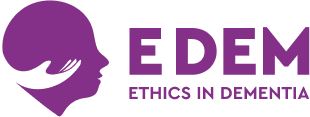1.2.1. APPROACH TO THE CHALLENGE AND PROGRESS BEYOND THE STATE OF THE ART
The Action will achieve its aim through an innovative bottom-up citizen science approach where caregivers, people with dementia, academics and representatives from care facilities, the dementia technology industry and health policy decision-makers, as well as applied and theoretical scientists, will identify key challenges and propose recommendations on how to solve them. This approach has the potential to change current practice through activities based on ethical theory and perceived needs in dementia care. It comprises the following three elements:
-
- Stakeholder involvement: With the citizen science approach, EDEM will involve a multiplicity of stakeholders from different countries and sectors in the process of identifying and analysing the key ethical dilemmas in dementia care. The bottom-up involvement will include formal and informal caregivers, healthcare professionals, health policy decision- makers and representatives from the dementia technology industry. This will ensure identification of the most significant ethical dilemmas and proposals for how to address them, grounded in both theory and practice.
- State-of-the art research: The network will engage top researchers within the field to analyse and discuss which principles and values should be included in an ethical framework in order to address the most burning issues in dementia care.
- Change: The Action will focus on changing the practice of dementia care in two respects: 1) bydeveloping policy recommendations on important values and principles to take into consideration in dementia care: 2) by creating an EDEM educational toolkit for caregivers across Europe on how to address ethical dilemmas, either at home or in specific institutional, cultural and care settings like nursing homes, adult day care centres etc.
EDEM will thus provide a comprehensive and innovative stakeholder informed understanding and analysis of ethical dilemmas, a proposal for a practical framework for addressing these dilemmas as well as policy recommendations and toolkits for training caregivers in how to tackle them either at home or in specific institutional, cultural and healthcare settings.
The strong emphasis on intercountry and cross-sectional stakeholder involvement in the network combined with high-level research will ensure that the network results in innovative outcomes that match previously unmet needs. Moreover, EDEM’s focus on recommendations, implementation, education and change warrants creation of a practical ethical framework and educational tools applicable to specific and culturally diverse healthcare settings.
1.2.2. OBJECTIVES
1.2.2.1 Research Coordination Objectives
The COST Action comprises the following research coordination objectives (RCOs):
- RCO1. Mapping: establishing a coherent scientific overview of existing efforts to tackle ethical dilemmas in dementia care in Europe through both a narrative overview of the scientific literature on ethical dilemmas in dementia care and of existing ethical frameworks, i.e. a synthesis of published literature on the topic, describing the current state-of-art, as well as a stakeholder informed mapping and assessment of existing ethical frameworks, e.g. national dementia plans and strategies or guidelines (see 4.1.1, WG1).
- RCO2. Development: developing a proposal for a practical European ethical framework that will support formal and informal caregivers in making ethical decisions in dementia care.
- RCO3. Recommendations: designing policy recommendations on how to implement the proposal for a practical ethical framework in concrete European cultural contexts and
healthcare settings. - RCO4. Education: developing an EDEM educational toolkit that can be integrated intothe curriculum of formal caregivers of people with dementia, and which will be equally useful for informal carers (see 4.1.1, WG3).
1.2.2.2 Capacity-building Objectives
The COST Action comprises the following capacity-building objectives (CBOs):
- CBO1. Common research agenda: providing a milieu for advancement in knowledge exchange and the creation of a common relevant research agenda on ethics in dementia across the network and Europe in general.
- CBO2. Bottom-up involvement of stakeholders: promoting a bottom-up stakeholder involvement and facilitating interdisciplinary collaboration among research institutions, patient associations (NGOs), small and medium-sized dementia technology enterprises (SMEs), care facilities, municipalities and health political institutions. The Action will establish targeted workshops on ethics in dementia and incorporate an action research methodology, pursuing change and understanding at the same time, thus achieving the RCOs of this Action (see. 4.1.1. WG2). This will create opportunities for research institutions, industry, NGOs, healthcare and health political institutions to collaborate on identifying and solving real needs in dementia care.
- CBO3. Inter-country collaboration: creating partnerships between research-intensive and less research-intensive nations in Europe, i.e. COST Inclusiveness Target Countries (ITCs).
- CBO4: Career development: 1) facilitating career progression, with a specific focus on gender balance and Early Career Investigators, by coordinating short-term scientific missions (STSMs) and facilitating partnerships among PhD students and postdocs and promoting research funding, e.g. Marie Skłodowska-Curie fellowships.
- CBO5. Empowerment: incorporating people with dementia ́s experiences and understanding of the various ethical dilemmas into the Action, by establishing local dialogues with people with dementia.
- CBO6. Education: bridging academic, educational and stakeholder expertise to develop innovative approaches to train student nurses and formal caregivers in participating countries.
- CBO7. Networking: gaining the support of and joining forces with existing networks, organisations and stakeholders like Alzheimer Europe, Interdem and Alzheimer’s Disease International – as well as medical (neurologists, geriatrician, psychiatrists, general practitioners) nursing and social workers and care organisations in Europe, both at the national and international level.


